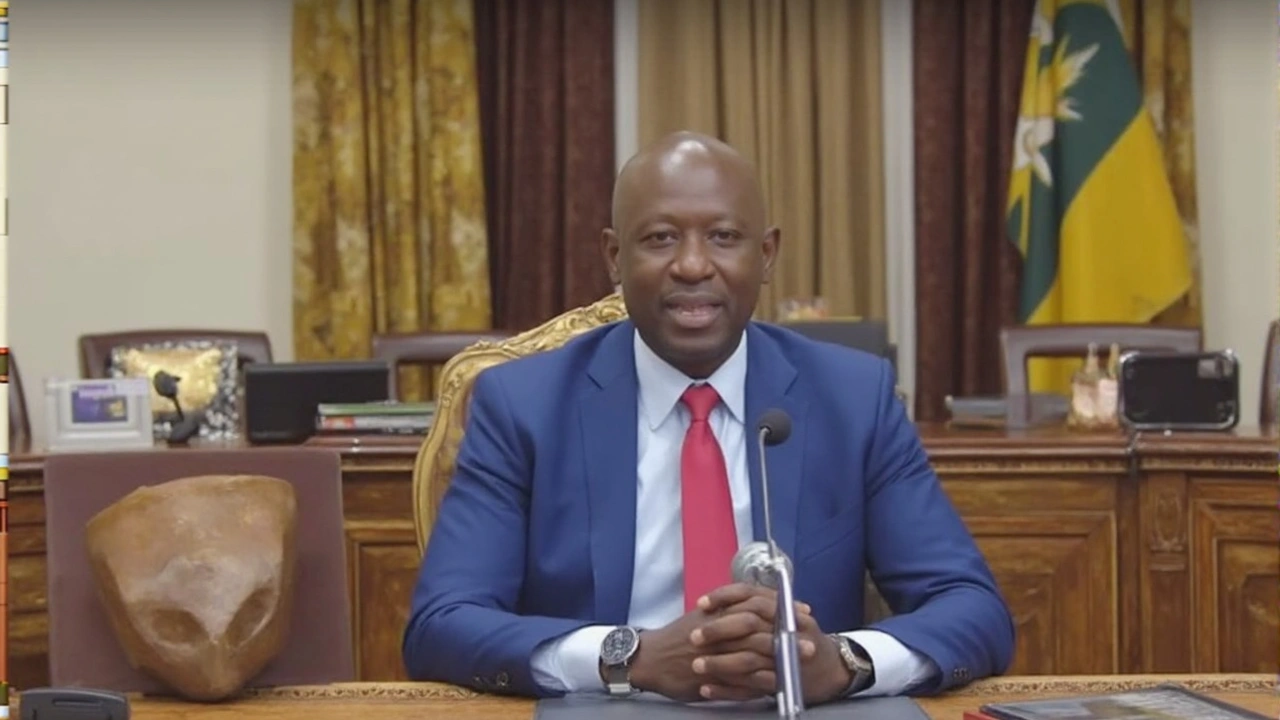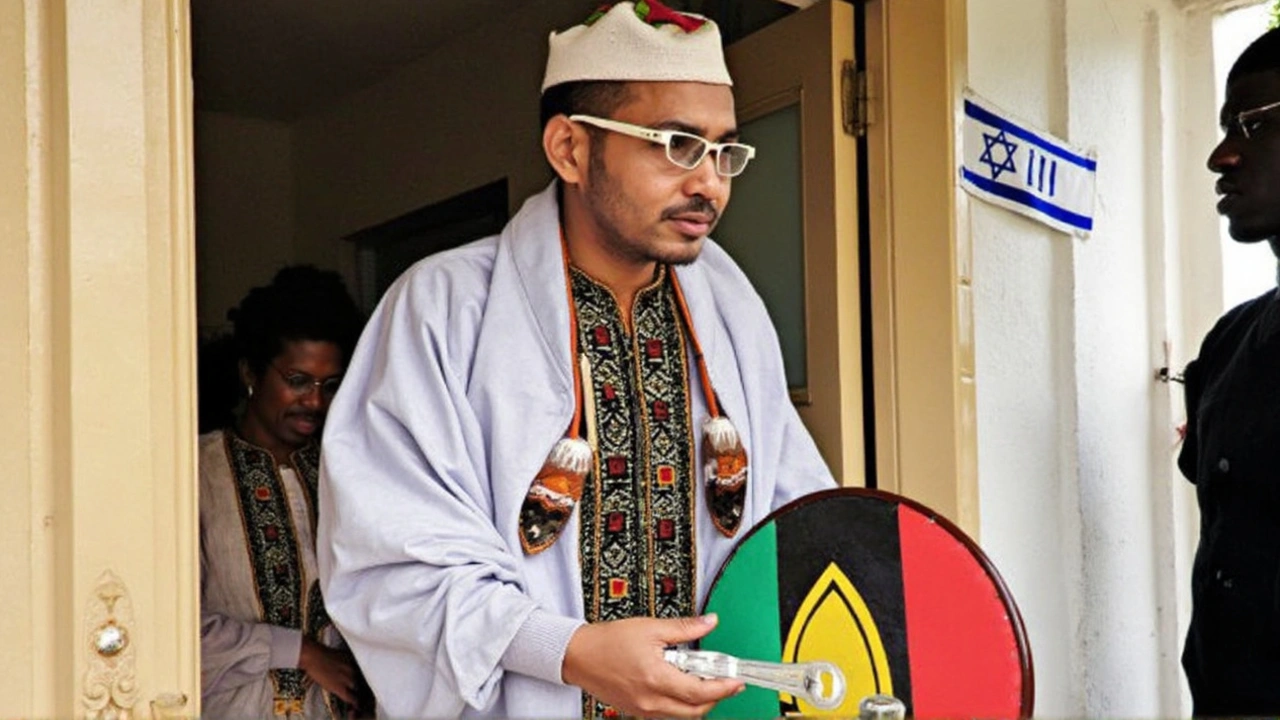Federal Government Faces Setback as Court Rules on Kanu's Statement
The courtroom in Abuja was tense as Justice James Omotosho took the bench, with the spotlight fixed firmly on one man—Nnamdi Kanu, leader of the banned Indigenous People of Biafra (IPOB). On May 29, 2025, the Federal High Court struck down the Federal Government’s main evidence: Kanu’s statements collected during his time with the Department of State Services (DSS). The government needed those confessions for its case—now, they’re off the table.
The judge’s message was clear: any statement signed or recorded outside the presence of a lawyer—especially if the accused claims it was forced—simply won’t fly. This wasn’t a wild interpretation. Justice Omotosho pointed to the Supreme Court’s insistence that anyone facing interrogation has an ironclad right to legal counsel at their side. Forget the Administration of Criminal Justice Act (ACJA) and its wishy-washy use of the word “may” for lawyer attendance; the higher court decided only a strict, no-loophole rule would do.

Insider Claims and Tensions in the Courtroom
Kanu’s defense team, led by Paul Erokoro, hammered this point home. They argued that while paperwork might leave wiggle room, the country’s top court didn’t. And Kanu himself added weight to their argument, describing a whole list of heavy-handed tactics allegedly used by DSS officials—he claims threats, pressure to blame major political figures, and outright denial of access to his lawyers. Kanu even named names, saying Brown Ukuaba, an Assistant Director at the DSS, delivered explicit threats if he didn’t toe their line. According to Kanu, agents urged him to sign false statements implicating former President Goodluck Jonathan and ex-Governor Rochas Okorocha in serious wrongdoing, all while his legal team wasn’t allowed through the door.
The court didn’t take these claims lightly. Instead of rubber-stamping the prosecution’s evidence, it called for a special procedure: a trial-within-a-trial. Here, the point wasn’t Kanu’s guilt or innocence, but whether his statements really were given freely or under a cloud of fear. After reviewing all sides, the judge made the call—the statements, obtained without solid proof of voluntariness and without a lawyer, wouldn’t be part of the trial going forward.
This isn’t just a routine evidence dispute. The ruling shines a bright light on deep-seated mistrust between those facing security agencies and the justice system meant to protect them. The Federal Government’s setback adds more tension to an already-loaded legal battle, where duress claims are no longer whispers—they’re now front and center in the fight. Throw in the fact that contempt proceedings are running against one of Kanu’s own in-laws for stirring up trouble in court, and you’ve got a case that’s anything but straightforward.
One thing’s clear: the Nnamdi Kanu saga is going to keep raising big questions about how confessions are taken, the power of security agencies, and whether justice is something everyone gets—or just a lucky few.


mona panda
May 31, 2025 AT 04:17So the court finally said no to coerced confessions? Interesting. I bet the DSS just shrugged and said 'well we got what we needed anyway.'
Evangeline Ronson
May 31, 2025 AT 22:27This ruling is a textbook application of constitutional due process. The Supreme Court has been unequivocal: legal counsel is not a suggestion. The DSS operating outside that framework isn't just unethical-it's unconstitutional. The fact that this even had to be litigated is alarming.
Cate Shaner
June 1, 2025 AT 02:06Oh wow, a judge actually enforced the law? Groundbreaking. Next they'll tell us the ACJA isn't just a suggestion written on napkins by bureaucrats who think 'may' means 'must.' The real scandal? This is the first time this has ever been challenged properly.
Thomas Capriola
June 1, 2025 AT 11:17They let Kanu name names? That's the real story. DSS agents telling suspects to implicate ex-presidents? This isn't justice. This is political theater with handcuffs.
Rachael Blandin de Chalain
June 1, 2025 AT 11:43The court's adherence to procedural integrity in this instance is both legally sound and morally commendable. The absence of counsel during custodial interrogation constitutes a per se violation of fundamental rights, irrespective of the accused's public standing.
Soumya Dave
June 2, 2025 AT 00:11Listen, this is a win for every Nigerian who’s ever been scared to speak up. The system’s broken, yeah-but when a judge says 'no more' to forced confessions, that’s hope. Don’t let the haters tell you this doesn’t matter. This is the kind of moment that changes the game. Keep pushing. Keep speaking. The law is on your side-even if the DSS isn’t.
Chris Schill
June 2, 2025 AT 04:08The trial-within-a-trial is the right move. It’s not about whether Kanu is guilty-it’s about whether the state followed the rules. If they didn’t, then the evidence is poison. And no matter how bad the crime, you don’t let the ends justify the means. That’s how democracies die.
cimberleigh pheasey
June 2, 2025 AT 20:37This is exactly why we need more judges who actually read the constitution instead of just signing whatever the state hands them. Kanu’s claims about Ukuaba? Terrifying. But the fact that the court took it seriously? That’s the kind of accountability we should be demanding across the board-not just in high-profile cases.
Tom Gin
June 3, 2025 AT 13:06Ohhhhh so now the DSS is just a fanfiction writing club? 'Dear Nnamdi, please sign this lie about Goodluck Jonathan or we’ll make your life a horror movie.' I mean, come ON. This isn't a trial-it's a Netflix docuseries waiting to happen.
Alex Alevy
June 3, 2025 AT 15:37Big win for legal rights. The fact that the court demanded proof of voluntariness is huge. Too many times, people sign stuff under duress and it’s just accepted. This sets a precedent-no lawyer, no statement. Period. If you’re going to arrest someone, you respect their rights. Full stop.
Aileen Amor
June 3, 2025 AT 20:35This is HUGE!!! The court didn’t just throw out evidence-they threw out the entire culture of fear!!! The DSS can’t just play mind games and expect courts to look the other way!!! This is the beginning of something REAL!!!
Danica Tamura
June 4, 2025 AT 13:23Of course they threw it out. Kanu’s a terrorist. The whole thing’s a circus. They’re letting a separatist walk because some paper wasn’t signed in the right room? Pathetic. This isn’t justice-it’s performance art for Western liberals.
William H
June 5, 2025 AT 10:19Let me guess-this is all part of the globalist reset. The DSS was just following orders from some shadow cabal to manufacture confessions to discredit African sovereignty movements. Kanu’s a pawn. The real target? The entire Igbo economic resurgence. They’re terrified of what happens when people stop believing the lies.
Katelyn Tamilio
June 6, 2025 AT 02:58this is actually kind of beautiful 🥹 everyone deserves to have their rights protected-even the people we don’t like. the fact that the court listened to the process over the politics gives me hope. thank you, judge omotosho 💙
Michael Klamm
June 7, 2025 AT 01:54dss be like 'sign this or we ghost ur lawyer' and court be like 'nah we aint doin that' lmao. soooo the whole case is just... gone? wow. guess they forgot to bring the coffee when they interrogated him
Shirley Kaufman
June 7, 2025 AT 06:42This is why legal safeguards matter. Without a lawyer present, any statement is inherently suspect. The court did its job. Now the prosecution has to build a case with real evidence-not coerced words. This is how systems heal: by holding power accountable. Keep pushing for transparency.
Cate Shaner
June 8, 2025 AT 03:35Oh, so now the 'trial within a trial' is the new procedural fad? Next they’ll be holding a focus group to decide whether the accused was coerced enough. Honestly, if the DSS can’t even get a confession right, maybe they shouldn’t be in the business of interrogations.